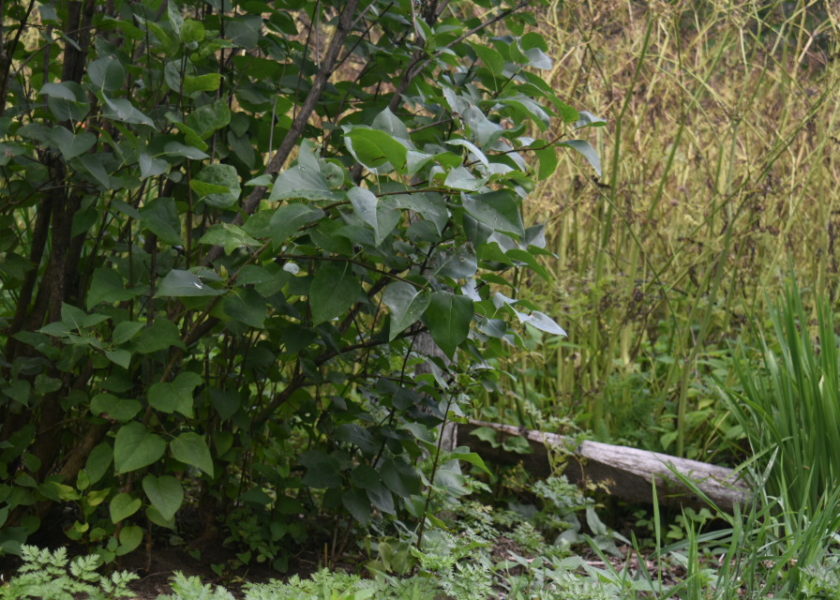It’s June and the chervil is in full bloom. Oh, those delicate white flowers might look harmless enough. And a single flower may well be of no consequence. But this noxious weed multiplies quickly and can grow to a stunning six feet. It fills the field beside my yard. All I can see behind my falling-down wooden fence is the ragged phalanx of chervil threatening to choke out my beloved fledgling hedge of young lilac bushes.
I do everything in my power to tame the floral invader and keep it at bay. Even so, chaos looms at the edge of my yard.
Chaos is a condition that is in generous supply these days. We certainly live in chaotic times – times unlike anything I’ve ever witnessed before. These days are so disturbing that I can barely bring myself to read the daily news, something that once amounted to a spiritual discipline for me. In my days as a parish minister it was my job to be informed. When the news was disturbing, I was the one people looked to for words of challenge, courage, comfort and hope. Preach with the Bible in one hand and the New York Times in the other, my preaching professor said. And for decades, through hurricanes and wars and civil uprisings, through national and community tragedies, that’s what I did.
But that was all before a global pandemic met years of systemic injustice and literally exploded in the streets. When I’m honest with myself I have to admit that I’m not finding a lot of hope and comfort, or even enough courage, to begin to try to absorb the impact of all of this societal and cultural dissonance. My tried and true ways of meaning-making aren’t working so well any more.
So, at my wits end, I head for the garden for solace, perspective, and a means of working out my frustration. I begin by attacking the weeds with my shovel and that rough, deep digging works well enough for a while. But eventually I find myself on my knees, nestled in the dirt, furiously digging out the remnants of the most stubborn roots.
Gardens look different at this level. As I dig I begin to discover lessons that had escaped me before. First, it’s much easier to clean up areas that had been tended in past years. Yes, there are still weeds, especially the dreaded chervil, but the work I did last year and the year before has made a decided difference.
Second, the more mature, and therefore stronger, lilac bushes have been able to hold their ground against the invasion of chervil. Though it took several summers, the shoots that I transplanted have established themselves and are thriving. Some of them are now taller than their weedy rivals and have sent out small shoots of their own. Barring catastrophe of nature or the over-eager carelessness of their gardener, they too will establish themselves.
The third and final lesson is the source of the lesson itself. Many of my spiritual ancestors believed that along with the Bible, nature itself is a place of divine revelation – a teacher in her own right. While nature’s instructions are somewhat subtler than those humans have captured in written form, they are often more powerful. At least for me. I can open and close a book at will, retaining varying portions of the content, depending on my attention span. It may or may not make an impression.
It’s not so easy just to walk away from a few hours of serious gardening. The garden itself literally clings to me. I’m covered head to toe with dirt and stray fragments of leaves and twigs. The garden forces me to pay attention even after I’ve finished my work there. And as I clean those earthy bits off my face and hands I notice how much more centered and grounded (yeah, it’s a cheesy pun) I am. So much so that I now dare to re-enter the world of current events.
Of course, the news didn’t get any better in the time that I spent with my lilacs But my ability to face it has changed, at least a little bit. My garden has taught me that while I can’t fix anything on a large scale by myself, I can make a difference by tending what is mine to tend. I can’t single-handedly end injustice in my country any more than I can stop the spread of chervil in my county. But I can keep both from completely overwhelming my soul and my land.
And when I do my own work I find that, perhaps counter intuitively, I have plenty of energy left to join with others to make a bigger impact and a bigger difference.

